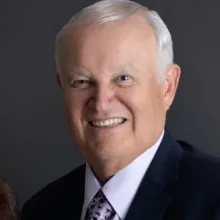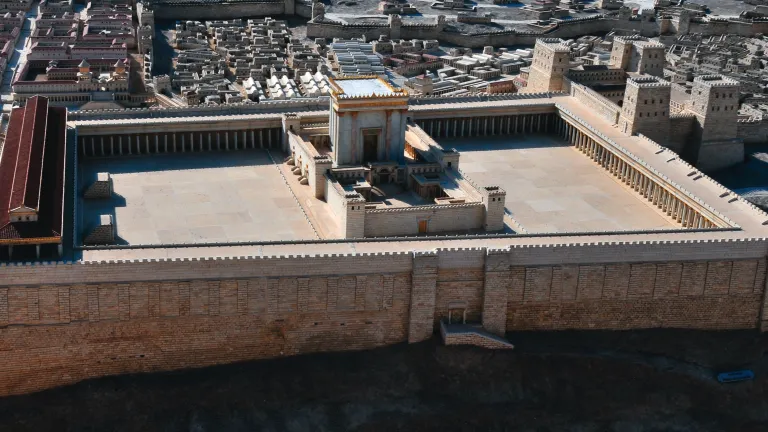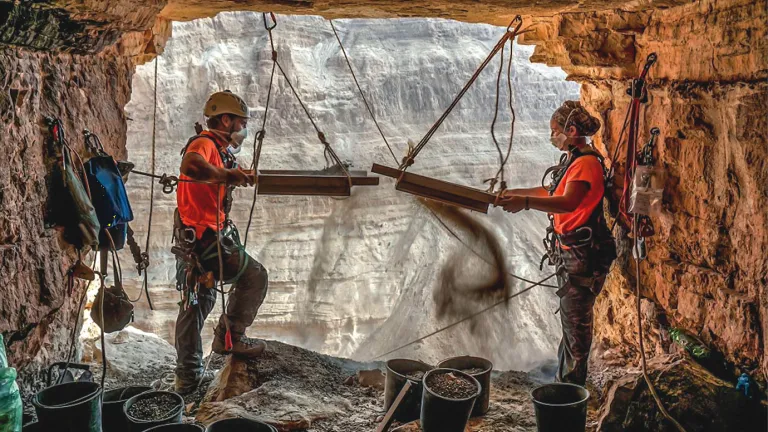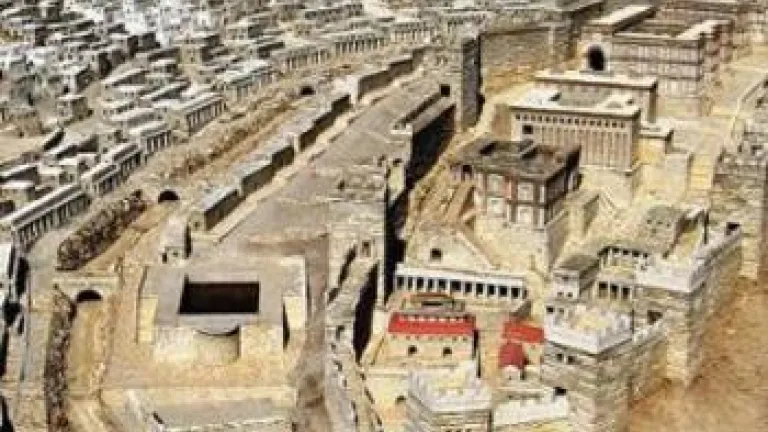God, Science and the Bible: Remains of King David's palace found in Jerusalem?
Israeli archaeologist Eilat Mazar announced in August that she has found in Jerusalem the remains of what could be the palace of the famed biblical King David mentioned in 2 Samuel 5:11.
For almost a decade Dr. Mazar suspected that the palace lay to the north of the mostly buried original walls of the cramped ancient city (that is, the walls from the time David captured the city from the Jebusites). She based this in part on 2 Samuel 5:17, which says that David, facing a Philistine invasion, "went down [from his palace] to the stronghold." Part of the foundation wall of what is believed to be this "stronghold" is clearly visible in east Jerusalem today.
Taking her cue from this hint that David's palace lay uphill from this ancient fortress, Dr. Mazar began excavations in that area in February. She also knew that in the 1960s, British archaeologist Kathleen Kenyon had uncovered nicely worked stones and capitals that topped large columns, both clear evidence that a large and ornate ancient structure had existed nearby.
There she uncovered foundations for a huge building, with boulders about two yards thick forming walls that extended at least 30 yards. Pottery fragments found just beneath the structure dated to the 12th to 11th centuries B.C., right before David captured Jerusalem and made it his capital. Other fragments found in a corner of the building were found to be from the 10th to 9th centuries B.C., during which David and his son Solomon reigned in Jerusalem.
Another intriguing find was a seal bearing the name of a biblical figure—Jehucal (also called Jucal), son of Shelemiah, a government official mentioned in Jeremiah 37:3 and 38:1.
At this point it is impossible to conclusively prove whether the structure is David's palace, the Jebusite or Israelite fortress, or some other structure not mentioned in the Bible. That will have to await further excavation, which is blocked at the moment by privately owned houses overlaying the site.
Regardless of what the structure eventually proves to be, it is definitely a major find. "This is a very significant discovery, given that Jerusalem as the capital of the united kingdom is very much unknown," explained Gabriel Barkay, an archaeologist with Israel's Bar-Ilan University. "This is one of the first greetings we have from the Jerusalem of David and Solomon, a period which has played a kind of hide-and-seek with archaeologists for the last century."
The find is "something of a miracle," according to Amihai Mazar, professor of archaeology at Hebrew University. "What she found is fascinating, whatever it is."
Dr. Mazar's work has been sponsored by the Jerusalem-based Shalem Center Archaeology Institute and funded by American financier Roger Hertog. Jerusalem's Hebrew University is academic sponsor of the excavation.








